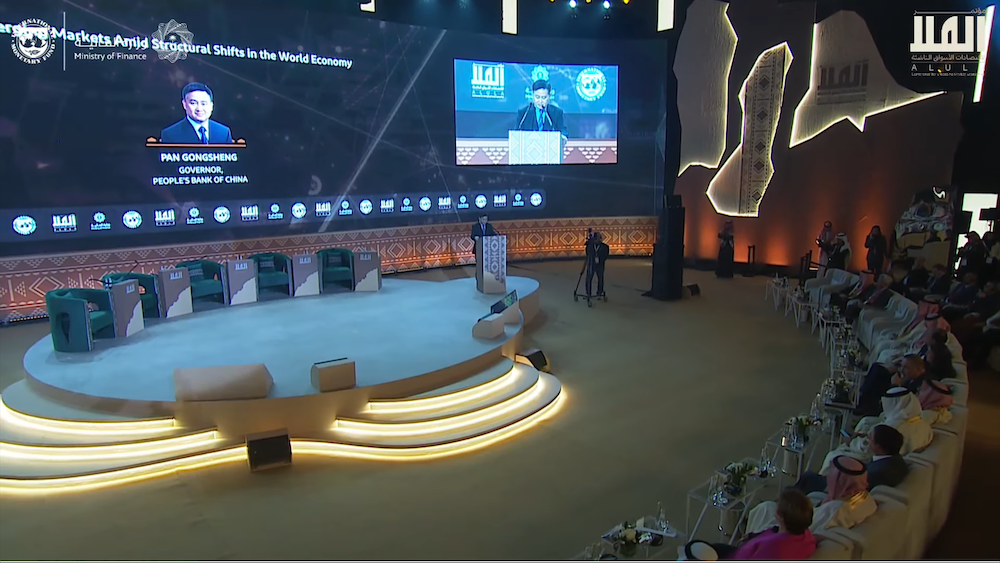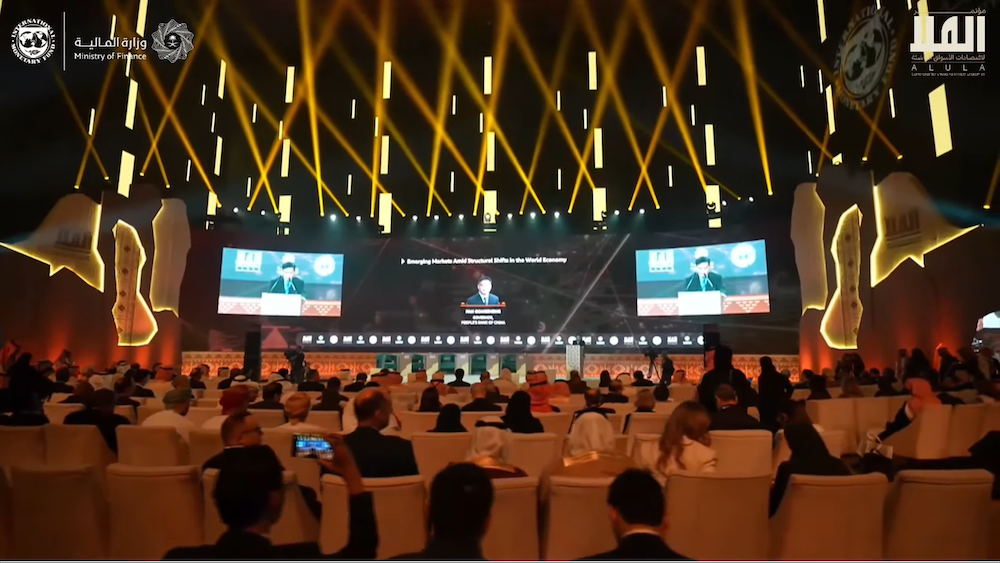RIYADH: Middle East eyewear retailer MAGRABi Retail Group is planning to open 36 new stores in 2024, expanding its footprint across the region and meeting increasing consumer demand for eyewear through its lifestyle brand, Doctor M.
In an interview with Arab News, Souha Hasan, vice president of Mainstream Business at the company, noted that expansion plan is driven by the market potential and size of the targeted segment.
Launched by the MAGRABi Retail Group in 2021 in Saudi Arabia, Doctor M now employs over 300 staff members across the Middle East region.
The company’s VP confirmed the firm is rolling out Doctor M stores across major cities in the Gulf Cooperation Council countries and Egypt, with the goal of having 300 outlets across the MENA region by 2030.
Currently, the group has 65 Doctor M stores and are opening new branches every month. The goal is to increase the total number of stores to 80 by the end of 2024, with 50 of those stores located in Saudi Arabia.
In 2023, the group invested SR115 million ($30.66 million) in new store openings, refurbishments, and transformation projects, laying a foundation for future growth and scalability.
“Our selection criteria for new stores are based on demographic insights and understanding the target customers of each location to ensure it aligns with Doctor M’s target personas,” Hasan said.
She continued: “We conduct a deep-dive analysis of each location from a real estate perspective, considering factors such as format, footfall, accessibility, and adjacency, which impact our sales forecasts.”
Hasan underscored key consumer trends that have significantly influenced the company’s strategy include a rising demand for modern urban eyewear stores offering distinctive value propositions, like Doctor M.
“We also recognize the preference for convenience, which drives our expansion strategy and our presence in various retail formats to meet our customers and showcase our services and product offerings,” Hasan told Arab News.
Furthermore, Hasan outlined several key trends shaping the eyewear retail market in the Middle East such as digital transformation, where retailers and brands are enhancing their e-commerce and digital channel experiences and presence.
“The wellness trend has increased awareness of eye health, driving demand for quality eyewear. For instance, we see that brands are prioritizing the eye protection narrative,” Hasan said.

Our selection criteria for new stores are based on demographic insights and understanding the target customers of each location to ensure it aligns with Doctor M’s target personas.
Souha Hasan, MAGRABi Retail Group VP of Mainstream Business
She added: “Furthermore, fashion and style play a significant role; eyewear is not just functional, it’s a fashion statement. We are expected to blend style, fashion, and functionality to attract different customer segments and personas.”
When asked on the expected financial impact of this expansion, she noted the firm is doubling its revenues in 2024 in line with the company’s three-year business plan.
In the past year, the brand has effectively implemented its growth strategy, doubling its store count and achieving an impressive 160 percent revenue increase in the first quarter of 2024 compared to the previous year.
Hasan further elaborated on the operational challenges anticipated during the rapid expansion of Doctor M.
These challenges include talent acquisition, focusing on recruiting personnel who align with the brand’s values and customer-focused approach.
“We address this challenge by anticipating the recruitment process ahead of time and targeting the appropriate staffing channels when hiring for specialty retail,” Hasan said.
She added: “For technical profiles, for instance, we collaborate closely with official institutes in each country to ensure the quality of optometry and deliver our promise to customers.”
Another challenge is maintaining consistency and standardization across all stores, addressed through the development of operational guidelines and maintaining close communication with store teams to monitor and respond to customer feedback effectively.
“Talent acquisition is one of our main priorities as we progress with the expansion plan. We work closely with our People & Culture teams across the region to ensure the fulfillment process,” she stressed.
Moreover, Hasan highlighted the importance placed on maintaining high-quality customer service and enhancing the overall shopping experience at all stores.
“We continuously work to meet customers’ expectations through our new retail concept stores, where the exploration of both vision correction and stylish frames is curated in line with our strategic positioning of lifestyle,” she said.
“This involves standardized and customized training models per country for our teams and consistent monitoring of customer feedback through our net promoter score and CRM channels.”
In addition to its physical footprint, the company has made significant strides in the digital sphere by using technology, such as advanced inventory systems and customer relationship management tools, to make operations more efficient.
These tools help track customer feedback and ensure that every interaction is consistent and personalized to meet their needs and preferences.
Looking ahead beyond 2024, Doctor M is committed to solidifying its position as a leader in the mainstream eyewear segment across the Middle East.
“The Group has continued to outperform the sector during challenging market conditions. Doctor M has contributed invaluably to our continued success, disrupting the category and becoming one of its leading players,” Yasser Taher, CEO of MAGRABi Retail Group told Arab News
In March, the company witnessed a 15 percent surge in total sales compared to the previous year, and a 30 percent increase in like-for-like transactions under its Doctor M banner, surpassing previous expectations.
The CEO attributed this growth to the expansion and development of the group’s property portfolio.
“We opened new stores for both our luxury banner Magrabi and the lifestyle banner Doctor M, including refurbishments, upgrades, and strategic store relocations,” Taher said.
This strategic expansion not only enhanced the group’s market presence but also contributed to higher average order values and increased foot traffic.


























